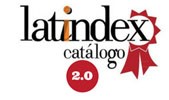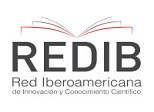Sustainable Development: A Study from the Perspective of International Law and the Ecuadorian Legislation
DOI:
https://doi.org/10.69890/hallazgos21.v3i1.214Keywords:
sustainable development; 2030 Agenda; United Nations; Ecuador.Abstract
This paper focuses on the study of sustainable development from a legal perspective. We talked about what sustainable development really is, about its origin and how it has been both its evolution and the structuring of the international normative sphere. Likewise, it was examined how the Ecuadorian legal system adopted this concept in the 2008 Constitution and in its various internal legislative bodies. The objective of this reflection was to analyze and to be effective the international and national regulation on the sustainable development, having as parameter to the Ecuadorian State. Through a method of legal - descriptive research, the emblematic regulations of sustainable development were studied and what are their practical applications. Faced with the challenge of the 2030 Agenda for Sustainable Development of the United Nations, where there are seventeen goals (GG) ahead, this essay set out how ambitious they are and concluded how Ecuador has the legal tools to acquire them, remaining the unknown and the possibility of reaching them.
References
AAG Center for Global Geography Education. (2011). Teoría malthusiana de la población. Recuperado de http://cgge.aag.org/PopulationandNaturalResources1e/CF_PopNatRes_Jan10ESP/CF_PopNatRes_Jan10ESP8.html
Asamblea Constituyente del Ecuador. (2008). Constitución del Ecuador. Recuperado de http://www.asambleanacional.gov.ec/documentos/constitucion_de_bolsillo.pdf
Asamblea Nacional del Ecuador. (2017). Código Orgánico del Ambiente. Recuperado de http://www.competencias.gob.ec/wp-content/uploads/2017/06/05NOR2017-COA.pdf
Cano, M. (2007). Equidad v. inequidadla. Declaración del Milenio de las Naciones Unidas y progresos en la consecución de los objetivos de desarrollo del milenio en América latina y el Caribe. Revista Electrónica Iberoamericana. Recuperado de https://dialnet.unirioja.es/revista/14665/A/2007
CEPAL. (2015). La región cumplió varias metas clave de los ODM, punto de partida para abordar la Agenda 2030. Recuperado de http://www.cepal.org/es/comunicados/cepal-la-region-cumplio-varias-metas-clave-de-los-odm-punto-de-partida-para-abordar-la
Children International. (2017). La pobreza en África. Recuperado de https://www.children.org/es/pobreza-global/datos-sobre-la-pobreza/africa
Comisión Mundial Para el Medio Ambiente y el Desarrollo de la ONU. (1987). Informe Brundtland. Recuperado de http://www.un-documents.net/wced-ocf.htm
Corte Internacional de Justicia. (1996). Opinión Consultiva. Legality of The Threat or Use of Nuclear Weapons. Recuperado de http://www.icj-cij.org/files/case-related/95/095-19960708-ADV-01-00-EN.pdf
Díaz, R. y Escárcega, S. (2009). Desarrollo sustentable. Oportunidad para la vida. Mexico, D.F: McGraw- Hill.
Fundación Universia. (2016). Diferencias entre el desarrollo sostenible y el sustentable. Universia México. Recuperado de http://noticias.universia.net.mx/cultura/noticia/2016/02/09/1136185/diferencias-desarrollo-sostenible-sustentable.html
Guzmán, P. (2013). Biodiversidad derecho y negocios. Bogota: Universidad Externado.
INEC. (2016). Reporte de Pobreza y desigualdad. Recuperado de http://www.ecuadorencifras.gob.ec/documentos/web-inec/POBREZA/2016/Diciembre_2016/Reporte%20pobreza%20y%20desigualdad-dic16.pdf
Molina, J. (2014). Derecho de la Naturaleza. Bogota: Universidad de Externado.
Murcia, D. (2012). La Naturaleza con Derechos . Quito: El Chasqui Ediciones.
Murga, M. (2009). La Carta de la Tierra: un referente de la Década por la Educación para el Desarrollo Sostenible. Revista de Educación. Ministerio de Educación de España. Recuperado de http://www.revistaeducacion.mec.es/re2009/re2009.pdf
Panayotou, T. (ed.) (2001). Environment for Growth in Central America: Environmental Management for Sustainability and Competitiveness. Cambridge, MA: Harvard University Press.
RAE. (vigesima edición). Diccionario de la Real Academia de la Lengua Española. Madrid : 2014.
Sachs, J. (2015). The Age of Sustainable Development. New York: Columbia University Press
Secretaría Nacional de Planificación y Desarrollo. (2013). Buen Vivir plan Nacional. Recuperado de http://www.buenvivir.gob.ec/versiones-plan-nacional
Secretaría Nacional de Planificación y Desarrollo. (2017). Plan Nacional de Desarrollo 2017-2021-Toda una Vida. Recuperado de http://www.planificacion.gob.ec/wp-content/uploads/downloads/2017/10/PNBV-26-OCT-FINAL_0K.compressed1.pdf
Stiligz, S., Sen, A. y Fitoussi, J. (2009). Informe de la Comisión sobre la Medición del Desarrollo Económico y del Progreso Social. París: INSEE.
ONU. (1975). Declaración sobre la utilización del Progreso Científico y Tecnológico en Interés de la Paz y en Beneficio de la Humanidad, 1975. Recuperado de http://www.ohchr.org/SP/ProfessionalInterest/Pages/ScientificAndTechnologicalProgress.aspx
ONU. (2017). Objetivos de Desarrollo Sostenible. Recuperado de http://www.un.org/sustainabledevelopment/es/objetivos-de-desarrollo-sostenible/
Downloads
Published
How to Cite
Issue
Section
License
Los artículos enviados a la Revista Científica Hallazgos21 deberán ser totalmente originales e inéditos.
Los autores son los responsables de los textos y las imágenes incluidas en los artículos y no necesariamente reflejan el pensamiento de la editorial o de la Pontificia Universidad Católica del Ecuador, Sede Esmeraldas (PUCESE).
Los autores disponen cederle a la Revista Científica Hallazgos21 todos los derechos inherentes para la edición, publicación y distribución o divulgación del mismo.
Se autoriza a las revistas firmantes de los acuerdos de Encuentros de Revistas Latinoamericanas para reproducir en parte o totalmente los artículos con la sola mención de la fuente claramente señalada.







